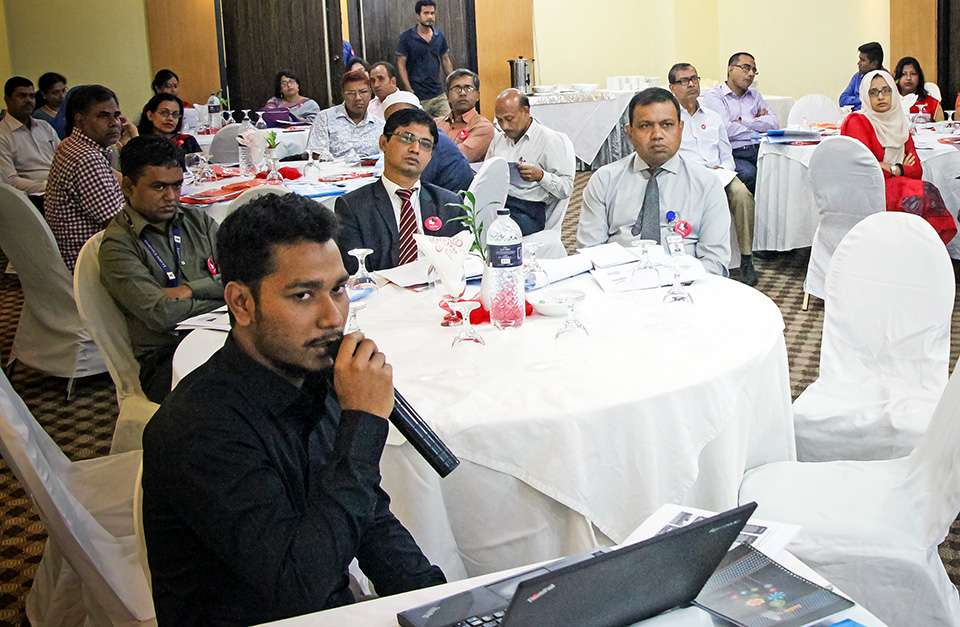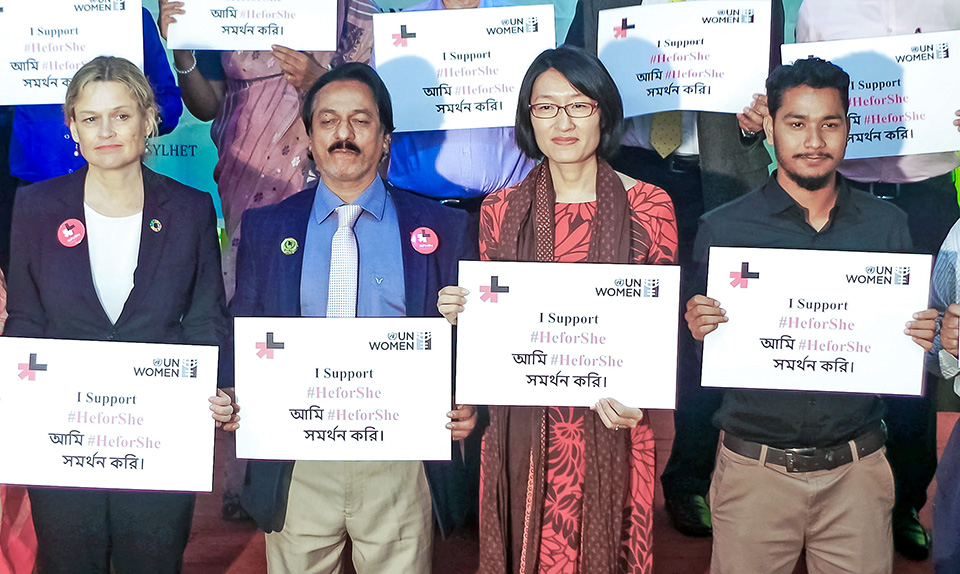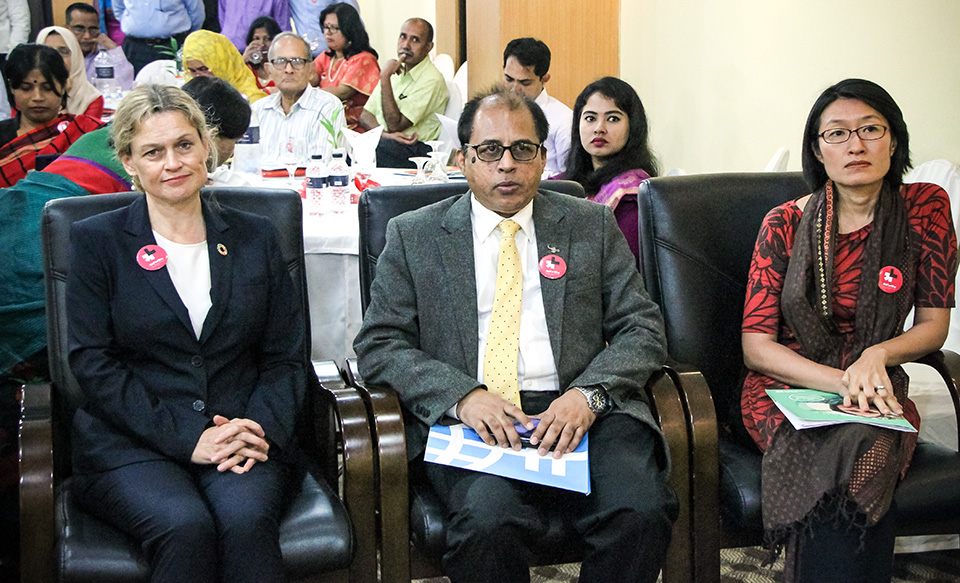Students confront sexual harassment on-campus in Bangladesh
Date:
Author: Samara Mortada
Sylhet, Bangladesh — Faced with high rates of sexual harassment, students and teachers at four universities in Bangladesh are raising awareness and thinking creatively to find solutions.

“Many times, students are victims of sexual harassment, but they do not feel comfortable sharing their experiences with anyone, not even in the university complaint box,” says Koyes Miah, student campaign leader at the Sylhet University of Science and Technology (SUST). “Being part of the student campaign group, many students feel like they can share these stories with me.”
In Bangladesh, a shocking 76 per cent of female students in higher education institutions report having faced sexual harassment on post-secondary campuses[1], according to UN Women research. A study in the European Union reveals 45 to 55 per cent of women have experienced sexual harassment since the age of 15. In New Delhi, studies have found that 66 per cent of women report experiencing sexual harassment between two and five times during the past year.
The “Building Capacity to Prevent Violence against Women” project is combating sexual harassment at four university campuses across Bangladesh by bringing students and teachers into the discussion. Students design campaigns to engage other students through interactive events like classroom discussions, sports, quizzes, debate competitions, cultural events, etc. They also use social media platforms to raise awareness around such issues.

At SUST, students themselves lead safety audits to determine which parts of the campus are less safe than others, or more prone to incidents of sexual harassment. They also suggest ways that the campus could be made safer for female students. Simultaneously, students take part in organized cricket and handball games, 16 days of activism activities, as well as enacting a Bengali version of the play Seven—which celebrates remarkable women changing the world. They are also all given guidance on gender equality and sexual harassment, during orientation week and in smaller groups during the school year.
“Girls who come back to the university dorm late at night have to face harassment, even from the guards. They are also called names for wearing jeans on-campus. A more structured solution to such problems is required,” says Tasnim Binte Haque, another member of the student campaign group, from SUST.
Additionally, faculty and authorities of all four institutions have developed an overall strategy for taking action to address and prevent sexual harassment. There are Sexual Harassment Prevention Committees at every university, for complaints against both staff and students.
On 8 September 2018, a learning session was organized in Sylhet, which was attended by Her Excellency, Charlotta Schlyter, Ambassador of Sweden to Bangladesh; Shoko Ishikawa, UN Women Country Representative; Professor Farid Uddin Ahmed, Vice Chancellor of Shahjalal University of Science and Technology as well as other university and project directors, to discuss sexual harassment and what universities in Sylhet are doing to prevent violence against women.

Delegates, teachers and multiple members of the audience pledged to become HeForShe champions and elaborated on how they would work to end violence against women. One group of students is now working to remove taboos around silence and victim-blaming through myth-busting discussions and female studenth support networks that challenge the culture of silence.
The project is implemented with close technical support from UN Women and financial support from the Government of Sweden.